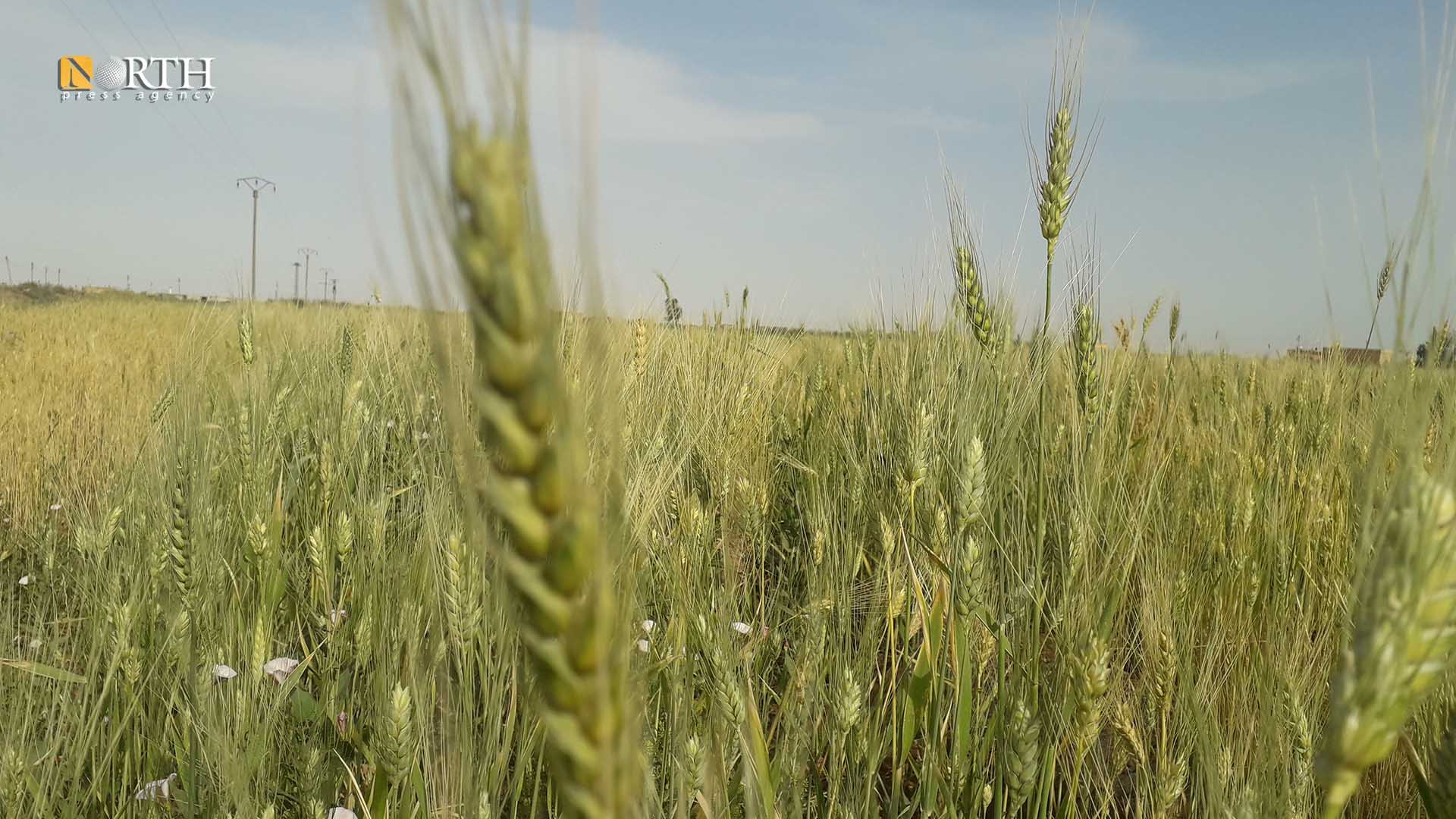Syria’s Autonomous Administration to support drought-stricken farmers
Co-chair of the Agriculture and Economy Authority in the Autonomous Administration, Salman Barudo said that they discussed the economic and agricultural situation in the region in the presence of Mazloum Abdi, Commander-in-Chief of the Syrian Democratic Forces (SDF).
He added to North Press that during the visit of SDF commander to the headquarters of the Autonomous Administration in Raqqa at the beginning of this week, Abdi stressed the need to provide all facilities to farmers during this season.
Barudo indicated that the Autonomous Administration is working on determining the nature of support for the drought-affected farmers’ compensation project this harvest season.
“We are working in light of studies submitted by all economic bodies and committees in all regions, on the basis of which facilities for agriculture will be provided, including fuel, fertilizers and seeds.”
The Economic and Joint Presidency of the Executive Council is studying the issue of encouraging farmers to cultivate their lands during the next season, according to Barudo.
Autonomous Administration areas in Syria need between 500,000 and 600,000 tons of wheat annually for flour and seeds. The Autonomous Administration’s stock of wheat amounts to 250,000 tons devoted to flour, and it is distributed to bakeries in all Autonomous Administration regions at a rate of 1,500 tons per day, according to the Economic and Agriculture Authority.
Most of the lands in the Autonomous Administration areas depend on rain for their cultivation, while the irrigated area does not exceed 300,000 hectares, indicating the negative effects of the drought on the agricultural and livestock sectors.
Turkey also threatens to withhold the Euphrates River’s waters from the region something the Autonomous Administration describes as a potential catastrophe if it continues.
The co-chair of the Agriculture and Economy Authority in the Autonomous Administration estimated that wheat productivity during this season will not exceed 400,000 tons, equivalent to two-thirds of the region’s annual need according to reports from economic bodies and committees in the Autonomous Administration regions.
During the last period, all centers were equipped to receive wheat and barley crops, and appropriate pricing for these two materials will be established during the next few days, according to Barudo.

